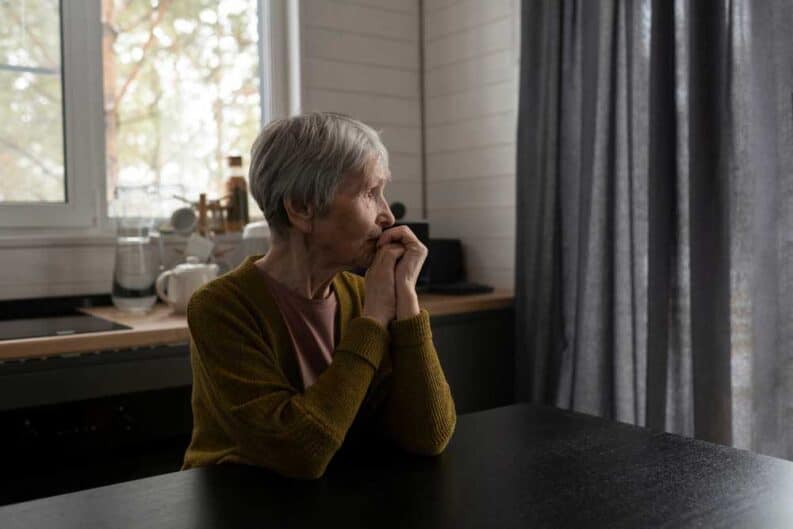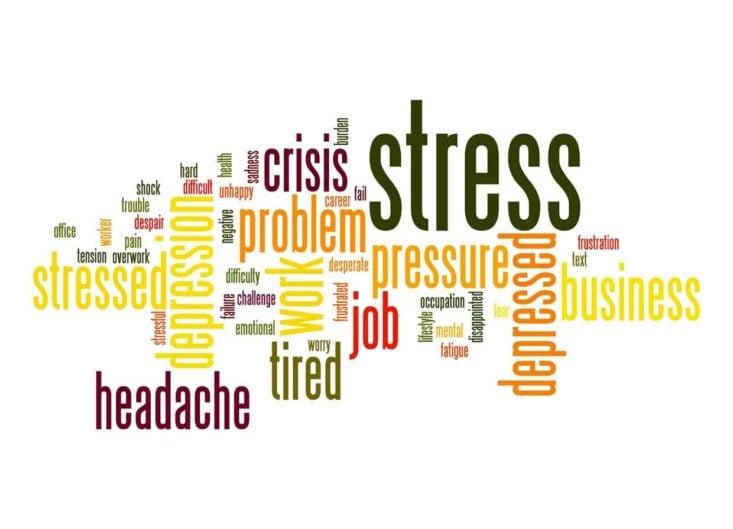According to the World Health Organisation, 15% of older adults suffer from mental health disorders. Unfortunately, almost one in three of those people don’t receive treatment. This is because they are either ashamed or concerned that it will be dismissed as a normal part of getting older.
You can evaluate your elderly loved one’s safety and well-being with the right knowledge and proactiveness. This will enable you to keep an eye on their emotional and mental health. Also, you can make sure they receive the right care from a primary care doctor or psychiatrist.
What is Mental Health Illness or Issues?
Your emotional, psychological, and social well-being are all parts of mental health. Your mental state influences thoughts, emotions, and behaviors. It also influences how you respond to stress, interact with others, and make healthy decisions.
Mental illnesses are medical conditions relating to changes in thinking, behavior, or a combination of both. Mental illnesses are also associated with difficulties functioning in social, work, or family activities.
You shouldn’t feel ashamed if you have a senior with a mental illness! Just like heart conditions and diabetes, it is a medical condition. Contrary to what some people think, mental health issues are treatable. The understanding of how the human brain works are expanding. As a result, people can successfully manage their mental health conditions through treatments from general care physicians.

Early Warning, Signs, and Symptoms of Elderly Mental Health Issues
There are numerous types of mental illnesses. Some are mild and may have just a little impact on daily life. Other mental health issues can be so severe that an individual may require constant medical attention. However, before these conditions become worse, there are always some early signs and symptoms that people ignore.
If you notice any of these symptoms in your senior, go to a hospital. Alternatively, you can search for a “mental health doctor near me” online. They can aid in the diagnosis and treatment of mental illnesses.
Primary health physicians can play a vital part in promoting mental health for elders. They do this by collaborating with
- Mental health professionals
- Local governments
- Civil society organizations
- Families
- And communities
to offer comprehensive mental health care and supportive environments. Some of these symptoms are:
1. Memory Issues
This is considered the most important symptom as it is broad. Many people mistake memory problems for a normal part of the aging process. This has led to many mental illnesses going unnoticed until they have progressed significantly.
Memory issues in elderly persons can be a sign of mental illnesses such as Alzheimer’s. Alzheimer’s disease is very common among all mentally challenged people. It is a degenerative brain disease.
If these things happen repeatedly, then your senior may be suffering from Alzheimer’s:
- Forgetting important dates or events. Repeatedly asking the same questions, and increasingly relying on memory aids (e.g., reminder notes or electronic devices) or family members for tasks they used to handle on their own.
- Some Alzheimer’s patients may experience changes in their ability to create and follow a plan, as well as work with numbers. They may also struggle to follow a familiar recipe or keep track of monthly bills.
- Alzheimer’s patients frequently struggle to complete daily tasks. They may have difficulty driving to a familiar location, preparing a grocery list, or remembering the regulations of a favorite game at times.
Mental illness often starts with this symptom. So, when you notice this once, twice, or thrice, take the necessary action!
2. Personal Care Alteration
A person suffering from mental illness may abandon their usual personal care habits. A noticeable change in appearance may show that a person is unable to effectively stick to their previous personal appearance routines.
They may also begin to wear the same clothes over and over again, or they may neglect to put on makeup or do their nails.
Among the signs of poor hygiene are:
- Putting on filthy clothes
- Having body odor
- Bad breath
- Neglected teeth and nails
- And skin sores
While these symptoms can also indicate physical health issues and declining health, it is essential to recognize that mental health is frequently at the root of the problem.
Your elderly one may be depressed or anxious, which causes them to neglect their appearance or hygiene. Keep an eye out for changes that are significantly different from their normal behavior.
3. Disorganized Speech
Disorganized speech is speech that lacks the expected logical connections between thoughts or questions and answers. Seniors may, for example, switch from one specific topic to another without ever finishing a thought. The topics could be faintly related or completely unrelated. In other cases, people give long, rambling answers full of irrelevant detail in response to simple questions.
Kindly note; misspeaking occasionally or being evasive, rude, or humorous on purpose is not considered disorganized speech.
4. Withdrawal from Social Activities
People suffering from mental illness commonly withdraw socially. Lowered willingness to participate in activities that your loved one used to enjoy is a sign that something is wrong. This could imply that they are no longer interested in hobbies or activities that they previously enjoyed.
It could also indicate that they are not going out as much or socializing as much as they used to. It’s easy to overlook this sign, so focus on their interests and act quickly if you notice a significant change.
5. Poor Financial Management
A change in your loved one’s spending choices is yet another indication that something is wrong. This frequently manifests as non-payment or overpayment of bills, misplaced money, or money hidden. They may make poor financial decisions or go missing with large sums of money.
An elderly person suffering from mental illness may make unusual or unnecessary purchases. Significant purchases, such as expensive items or large quantities of food, can be indicators. You may have noticed that they;
- Are donating large sums of money and competing in numerous contests
- Frequently buying online or from television advertisements
- Purchasing extravagant gifts for themselves or others.
6. Physical Injuries
Physical problems or injuries are one of the less visible signs of mental illness in the elderly. Falls, wounds, and cuts occur more frequently than usual. It can also refer to an unexpected increase in accidents or illnesses.
You may notice more injuries as a result of weakness or memory loss. Or you may suspect they are the side effects of alcohol and prescription medication abuse. Physical injury caused by mental illness can be difficult to detect because it is frequently attributed to age or clumsiness.
Final Thought
Cobbing symptoms is easier than treating an illness. Don’t be confused if you notice indications of mental illness in your parents or other elderly relatives. These conditions are treatable with medications and counseling from primary health doctors.
If you know a senior who exhibits any of these symptoms, encourage them to seek help from a mental health professional who can diagnose and treat mental illness. Some seniors may be hesitant to seek help on their own, so you must encourage and support their treatment.















